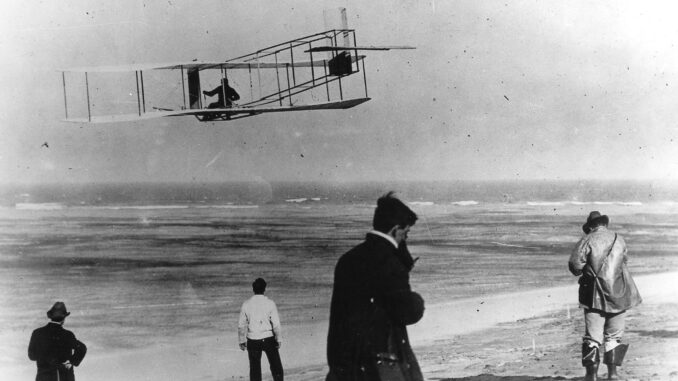
These transformational events in history happened this week.
Dec. 12
1870: Joseph H. Rainey of South Carolina became the first black lawmaker sworn into the U.S. House of Representatives.
2000: George W. Bush became president-elect as a divided U.S. Supreme Court reversed a state court recount decision in Florida’s tightly contested presidential election.
Dec. 13
1577: Francis Drake set sail from England on an epic three-year circumnavigation of the world aboard the “Pelican” (later renamed the “Golden Hind”).
1623: The Plymouth Colony established the system of trial by 12-men jury in the American colonies.
1862: Union forces led by Maj. Gen. Ambrose Burnside launched futile attacks against entrenched Confederate soldiers during the Civil War Battle of Fredericksburg.
2003: Saddam Hussein was captured by U.S. forces while hiding in a hole under a farmhouse in Adwar, Iraq.
Dec. 14
1799: George Washington died at his Mount Vernon, Virginia, home at age 67.
1911: Norwegian explorer Roald Amundsen and his team became the first men to reach the South Pole.
Dec. 15
1791: The Bill of Rights went into effect following ratification by Virginia.
1890: Sioux Indian Chief Sitting Bull and 11 other tribe members were killed in Grand River, South Dakota.
1939: The Civil War motion picture epic “Gone with the Wind,” starring Vivien Leigh and Clark Gable, had its world premiere in Atlanta.
Dec. 16
1653: Oliver Cromwell became lord protector of England, Scotland and Ireland.
1773: The Boston Tea Party took place as American colonists boarded a British ship and dumped more than 300 chests of tea into Boston Harbor to protest tea taxes.
1907: Sixteen U.S. Navy battleships, which came to be known as the “Great White Fleet,” set sail on a 14-month round-the-world voyage to demonstrate American sea power.
1944: The World War II Battle of the Bulge began as German forces launched a surprise attack against Allied forces through the Ardennes Forest in Belgium and Luxembourg.
1950: President Harry S. Truman proclaimed a national state of emergency in order to fight “world conquest by Communist imperialism.”
2020: The first COVID-19 vaccinations were underway at U.S. nursing homes, where the virus had killed 110,000 people.
Dec. 17
1777: France recognized American independence.
1903: Wilbur and Orville Wright conducted the first successful manned powered airplane flights near Kitty Hawk using their experimental craft, the Wright Flyer.
Dec. 18
1865: The 13th Amendment to the Constitution, abolishing slavery, was declared in effect by Secretary of State William H. Seward.
1892: Peter Ilyich Tchaikovsky’s ballet “The Nutcracker” publicly premiered in St. Petersburg, Russia.
1917: Congress passed the 18th Amendment to the U.S. Constitution prohibiting “the manufacture, sale, or transportation of intoxicating liquors” and sent it to the states for ratification.
1940: Adolf Hitler signed a secret directive ordering preparations for a Nazi invasion of the Soviet Union. (Operation Barbarossa was launched in June 1941.)
1957: The Shippingport Atomic Power Station in Pennsylvania, the first nuclear facility to generate electricity in the United States, went online

